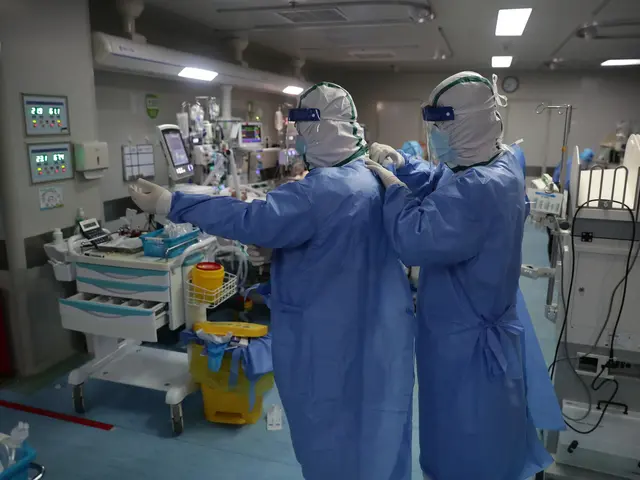Called "the pulse of life," the aorta is the main artery that carries blood away from the heart to the rest of the body. People with aortic problems are likely to die quickly without emergency treatment.
But as the COVID-19 pandemic taxes health systems around the world, performing such surgeries in a safe way with sufficient medical resources is a challenge. Chinese surgeons are sharing their expertise with the world.
Shu Chang, a distinguished Chinese surgeon specializing in aortic diseases, has been fielding calls and emails since the outbreak of the COVID-19.
"We have a responsibility to the patient, but also the health care workers and the wider health care service in the city and even the country," said Shu, who works at Fuwai Hospital, Chinese Academy of Medical Sciences.
About 50 percent of the patients with aortic dissection could die within 48 hours without timely treatment, and 60 percent to 70 percent within a week.
But under escalating pressure from the COVID-19 outbreak, emergency heart surgeries may put health care workers and patients at high risk of infection with COVID-19.
Along with shortages in intensive care beds, ventilators and medical professionals, a thoughtful decision-making process on performing such surgeries is needed.
Shu and his team developed a set of guidelines and protocols for emergency room, wards and operating room at Fuwai Hospital, China's largest hospital specializing in cardiovascular diseases.
"It's not about bravery or being heroes," said Shu, noting that hospitals must take maximum protective measures to ensure health care workers stay healthy which means being responsible for patients, their family members and the whole health care system.
They have divided surgeons and nurses into groups so possible quarantines can be applied to groups within the team rather than the team as a whole, which would close the entire service. Doctors have been recommended to choose simple and effective surgical techniques in order to reduce trauma and operation time.
In late February, Shu and his colleagues published the expert recommendation in the Chinese Circulation Journal. Over the last three months, about 70 aortic surgeries were performed at the hospital with no COVID-19 infection reports.
Xing Chao, director of international cooperation at Fuwai Hospital and chairman of Beijing Kaiqi Cardiovascular Foundation, said that virus is the common enemy of the world. Most COVID-19 severe and death cases are senior citizens with cardiovascular diseases. Fuwai Hospital hopes doctors around the world can share their insights and communicate on online platforms to provide better service to patients and protect medical workers as well.
On April 3, Shu and his colleagues in Beijing and Wuhan, for the first time, shared their experience with doctors in countries like Indonesia, Vietnam and Thailand.
On April 15, cardiovascular doctors from 26 countries in the Asian-Pacific region, the Middle East, Europe and Africa attended a webinar, which so far has been viewed more than 3,000 times.
The playback link was also put on the homepage of the International Symposium of Angiology and Vascular Surgery.
Juan Paolini, president of Society of Vascular Surgery in Argentina, said in an email that "If there is the possibility of setting up a teleconference for members of my society, it would be of enormous value."
"Doctors around the world are all trained to care for patients to the best of their ability. We'd like to share our experience with them," said Shu.
 简体中文
简体中文

